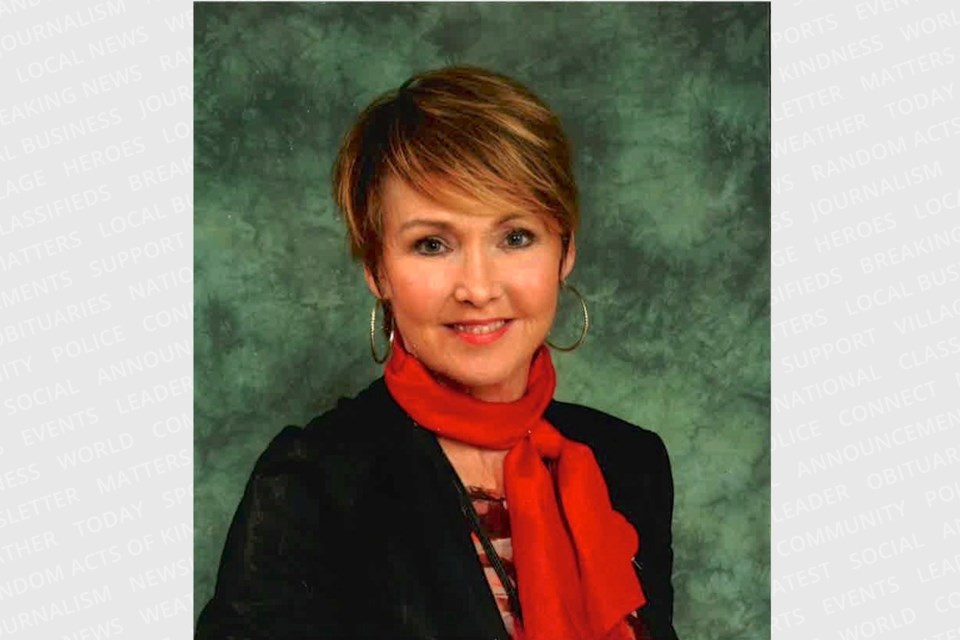Councillor Deb Doherty is hoping for re-election to Collingwood council because she’s eager to keep working on the big topics of land use, reducing carbon footprints, and changing the status quo for traffic planning.
“I just feel like there’s lots of work to be done,” said Doherty. “Somebody’s got to step up … and I love this.”
Doherty was born in Quebec City, grew up in Montreal and later in the Greater Toronto Area (GTA) before moving to Collingwood 35 years ago from Hamilton. Her professional background is in marketing and advertising.
She’s completing her third term on Collingwood council, and was just elected to the Association of Municipalities of Ontario board of directors.
“I’ve really focused a lot on land-use planning this term,” said Doherty. “We’re growing so fast and growth is a concern … unchallenged growth plus the affordable housing issue, which is also a byproduct of growth, it’s all about land-use planning.”
While affordability isn’t solely a municipal government’s responsibility, it does end up in council’s discussions in chambers and on the street.
“Just like everything else, it sort of falls on the municipality,” said Doherty. “There is a lot we can do. Should we be putting significant financing behind it? No. But we can introduce zoning and official plan aspects that can enable more affordable housing to start to appear.”
She cited the town’s recent work to streamline and discount the process for adding an accessory unit, such as a basement apartment or garage loft, to existing homes in town to increase rental stock. There’s also a benefit to a homeowner who may rely on rental income to cover the mortgage.
Throughout her three terms, she has come to the conclusion that the most important thing a councillor can do is listen to constituents, staff and colleagues.
“The issues that we’re dealing with, currently, as compared to when I was first on council, are just so much more complex,” she said. “It seems like there are no small issues.”
In the next term, she’s looking forward to the Awen Waterplay and the Wilson Sheffield Park opening.
“What’s going to be nice is to see some real advancements of affirmative action toward things like the Terminals redevelopment, because there’s been a lot going on in the background, but they’re just sitting there looking like they always do,” said Doherty.
Some steps toward an arts facility is also on Doherty’s wishlist for the next four years.
“When I moved here in 1988 people were talking about getting an all-arts facility,” she said. “And we’re still talking about it … we have a feasibility study and some concepts … so now we have to take the next step … shovels in the ground if we’re really lucky.”
As a member of the Blue Mountain Watershed Trust and a supporter of a net zero emissions goal by 2050 for the town, Doherty also wants to see actions to reduce the town’s carbon footprint and perhaps even a switch to streets that consider pedestrians before cars.
“We all have to do our part. We all fundamentally have to change the way we eat, the way we build, everything. Otherwise, I don’t know what kind of a planet our kids are going to inherit,” said Doherty.
She’s looking forward to a new transportation master plan for the town for similar reasons.
“I think that not only is that [plan] needed, but I also think we actually have to turn some of our thinking about transportation on its ear,” said Doherty. “The way we plan roads is not fitting with the way people want to move.”
She cited a recent Ontario Traffic Council conference held in Collingwood and one of the speakers who published a book entitled Confessions of a Recovering Engineer.
“He talked about how your engineering principles and transportation development and how people actually want to live and move are diametrically opposed,” said Doherty. “Principles of traffic design sets priorities in order as volume, speed, cost, safety. But people’s priorities are safety, cost, volume, speed. There’s a huge disconnect there.”
Doherty has concerns about the use of a ministerial zoning order (MZO) for the proposed Poplar Sideroad development called a “health and wellness village” with residential and health care commercial units listed in the briefs given to council.
An MZO is a provincial re-zoning process that circumvents the municipal re-zoning process and public meetings. Collingwood council was asked to support an MZO on the property to speed up the development window. Doherty voted against it.
“I don’t necessarily have any kind of a concern with the concept, but the implementation under that kind of zoning that they’re requesting is not guaranteed,” said Doherty. “We could wind up with something dramatically different than what we’re seeing right now at the conceptual level.”
She said she wants the town’s planning department and residents involved in the whole process and she wants the town to have control over how and when the project is built out.
Doherty was first elected to council in 1996 and then again in 2014 and 2018.
There are 12 candidates running for the seven available councillor seats for Collingwood in the 2022 municipal election taking place Oct. 24. The candidates include: Chris Baines, Steve Berman, Ian Chadwick, George Dickenson, Deb Doherty, Cam Ecclestone, Brandon Houston, Kathy Jeffery, Steve Johns, Steve Perry, Chris Potts, and Rob Ring.
You can find out if you’re on the voter list by visiting the town website here.
Advance voting starts Oct. 8 with internet or paper ballot voting options available. You can vote at the library in-person starting Oct. 8, or online anytime after Oct. 8 at 10 a.m. Library voting will take place Saturday and Wednesday, Oct. 8-22 from 10 a.m. to 8 p.m. and on Oct. 24 from 10 a.m. to 8 p.m.
Voting will close on election day, Oct. 24, at 8 p.m.



